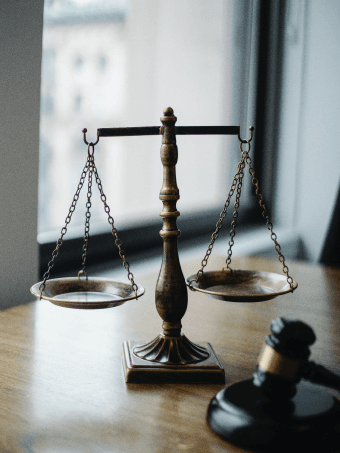
According to the EUIPO's annual reports, there were 175,900 trademark applications filed in 2020, and the EUIPO registered 135,500 trademarks during the same year. This means that approximately 22% of trademark applications were refused or withdrawn by applicants during the examination process.
It is worth noting that the rejection rates may vary depending on various factors, such as the quality and distinctiveness of the trademark, the goods and services for which it is registered, and the potential conflicts with earlier trademarks. When examining trademark applications, the EUIPO considers both relative and absolute grounds for refusal.
Relative Grounds for Refusal
Relative grounds for trademark refusal by the EUIPO refer to situations where a trademark application conflicts with an earlier trademark registration or application. These grounds are set out in Article 8 of the EU Trade Mark Regulation (EUTMR) and include the following:
Identical earlier trademarks: A trademark application will be refused if it is identical to an earlier trademark registration or application that covers the same goods or services.
Similar earlier trademarks: A trademark application will be refused if it is similar to an earlier trademark registration or application that covers the same or similar goods or services, and there is a likelihood of confusion on the part of the public, including the likelihood of association with the earlier trademark.
Well-known earlier trademarks: A trademark application will be refused if it is identical or similar to an earlier trademark that is well-known in the European Union (EU), even if the goods or services are not similar, and where the use of the later trademark would take unfair advantage of, or be detrimental to, the distinctive character or reputation of the earlier trademark.
Earlier trademarks with a reputation: A trademark application will be refused if it is identical or similar to an earlier trademark that has a reputation in the EU, even if the goods or services are not similar, and where the use of the later trademark would take unfair advantage of, or be detrimental to, the distinctive character or reputation of the earlier trademark.
Absolute Grounds for Refusal
Absolute grounds for trademark refusal by the EUIPO refer to situations where a trademark application does not meet the requirements for registration under EU law. These grounds are set out in Article 7 of the EU Trade Mark Regulation (EUTMR) and include the following:
Descriptive marks: A trademark application may be refused if the trademark consists exclusively of signs or indications that may designate the characteristics of the goods or services, such as their kind, quality, quantity, intended purpose, value, geographic origin, or the time of production.
Non-distinctive marks: A trademark application may be refused if the trademark consists exclusively of signs or indications that are not capable of distinguishing the goods or services of one undertaking from those of another.
Generic marks: A trademark application may be refused if the trademark consists exclusively of signs or indications that have become customary in the current language or in the bona fide practices of the trade for the goods or services concerned.
Marks contrary to public policy or morality: A trademark application may be refused if the trademark is contrary to public policy or morality.
Deceptive marks: A trademark application may be refused if the trademark is likely to deceive the public, particularly as to the nature, quality, or geographical origin of the goods or services.
As navigating trademark registration can be not the easiest task, it is recommended to work with a professional trademark lawyer in order to increase chances of successful registration. A trademark lawyer can help with various aspects of the trademark registration process, such as conducting a thorough search to ensure that the proposed trademark is available for registration, preparing and filing the trademark application, responding to any objections or oppositions raised by the EUIPO or third parties, and advising on strategies to protect and enforce the trademark once it is registered.


